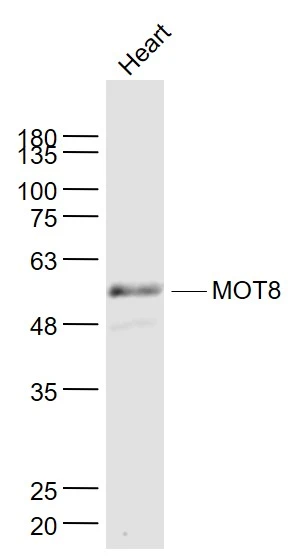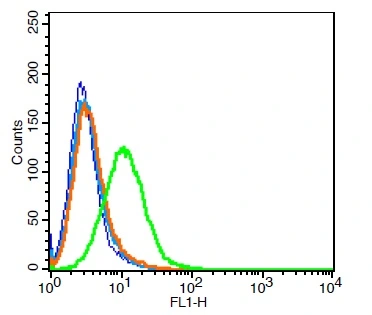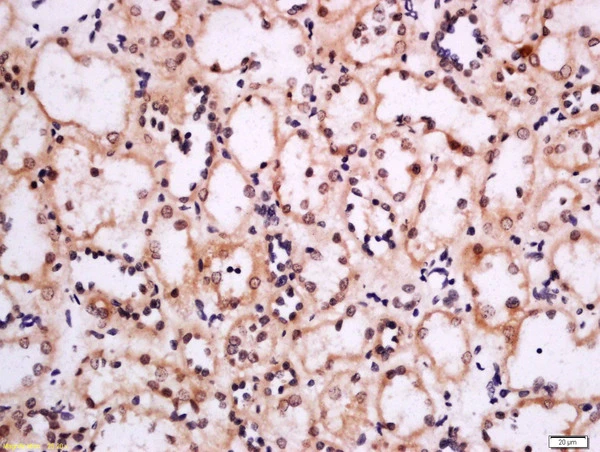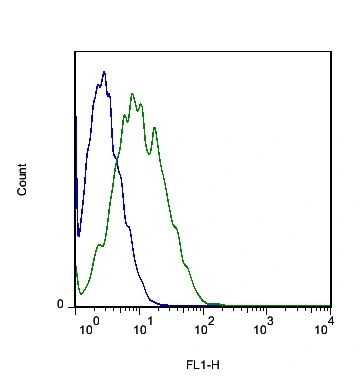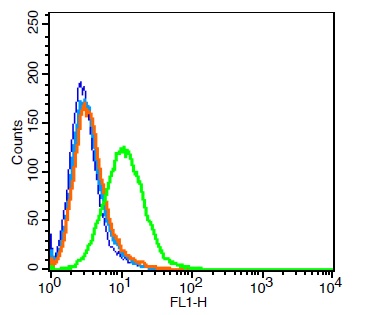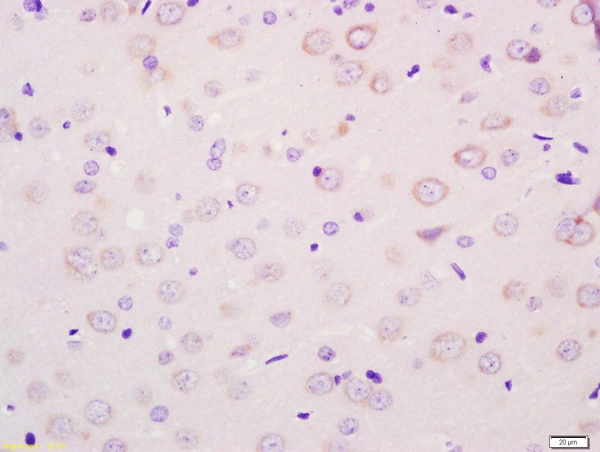
IHC-P analysis of rat brain tissue using GTX51095 MCT8 antibody. Dilution : 1:200
MCT8 antibody
GTX51095
ApplicationsFlow Cytometry, Western Blot, ImmunoHistoChemistry, ImmunoHistoChemistry Paraffin
Product group Antibodies
ReactivityHuman, Mouse, Rat
TargetSLC16A2
Overview
- SupplierGeneTex
- Product NameMCT8 antibody
- Delivery Days Customer9
- Application Supplier NoteWB: 1:300-1000. IHC-P: 1:50-400. FCM: 1:20-100. *Optimal dilutions/concentrations should be determined by the researcher.Not tested in other applications.
- ApplicationsFlow Cytometry, Western Blot, ImmunoHistoChemistry, ImmunoHistoChemistry Paraffin
- CertificationResearch Use Only
- ClonalityPolyclonal
- Concentration1 mg/ml
- ConjugateUnconjugated
- Gene ID6567
- Target nameSLC16A2
- Target descriptionsolute carrier family 16 member 2
- Target synonymsAHDS, DXS128, DXS128E, MCT 7, MCT 8, MCT7, MCT8, MRX22, XPCT, monocarboxylate transporter 8, X-linked PEST-containing transporter, monocarboxylate transporter 7, solute carrier family 16, member 2 (thyroid hormone transporter)
- HostRabbit
- IsotypeIgG
- Protein IDP36021
- Protein NameMonocarboxylate transporter 8
- Scientific DescriptionThis gene encodes an integral membrane protein that functions as a transporter of thyroid hormone. The encoded protein facilitates the cellular importation of thyroxine (T4), triiodothyronine (T3), reverse triiodothyronine (rT3) and diidothyronine (T2). This gene is expressed in many tissues and likely plays an important role in the development of the central nervous system. Loss of function mutations in this gene are associated with psychomotor retardation in males while females exhibit no neurological defects and more moderate thyroid-deficient phenotypes. This gene is subject to X-chromosome inactivation. Mutations in this gene are the cause of Allan-Herndon-Dudley syndrome. [provided by RefSeq, Mar 2012]
- ReactivityHuman, Mouse, Rat
- Storage Instruction-20°C or -80°C,2°C to 8°C
- UNSPSC41116161

